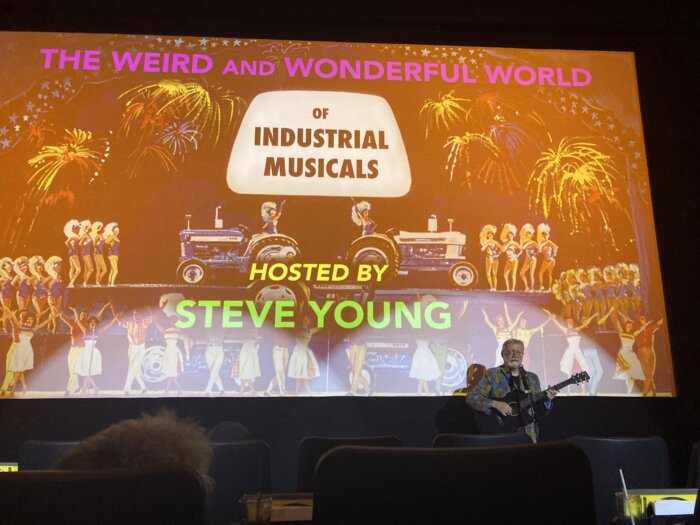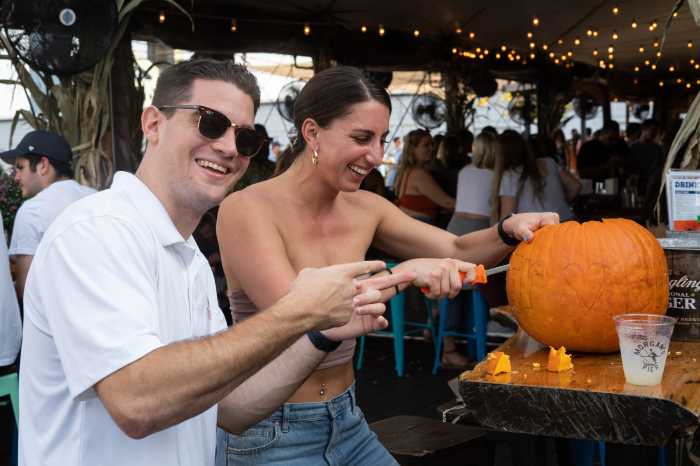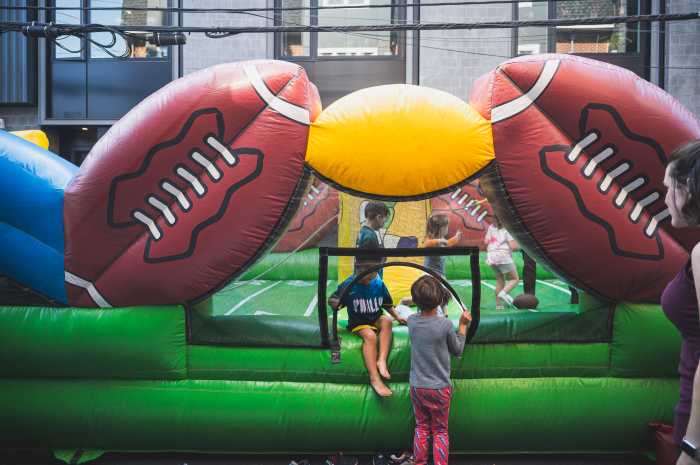For decades, comedian and writer Steve Young was renowned for his work on ‘Late Night with David Letterman’ and ‘The Late Show with David Letterman’, as well as his behind-the-scenes tenure with ‘The Simpsons’. That changed, however, when Young leaped onto the screen himself in ‘Bathtubs Over Broadway’, the award-winning documentary about his book, ‘Everything’s Coming Up Profits – The Golden Age of Industrial Musicals.’
Now, Young capitalizes on that fame, wowing audiences with his first-ever stand-up-and-show off tour, the
Weird and Wonderful World of Industrial Musicals, where the comic interacts with screenings of his shorts from the 1950s-through-1980s. The home of all things charmingly odd, PhilaMOCA, will welcome Young’s Weird, Wonderful World, to theirs, on Nov.16.
Young spoke to Metro about Letterman’s ‘Dave’s Record Collection’ and the “toe-tapping in-house musical propaganda for General Electric, Kellogg’s, American-Standard, Citgo, Purina”.
What did you learn from your time with ‘The Simpsons’ and David Letterman that influences your comedy now?
I learned that I can do something funny and unique when I listen to my little in-born voice telling me to look for the odd detail or angle that nobody else has noticed yet. That was certainly the case with industrial musicals, a genre that was close to completely unknown and those who had noticed it dismissed it as worthless. Also, I have an affinity for strange and surprising juxtapositions — sometimes resulting in hilarity, but sometimes in non-comedic beauty. I learned that I’m thrilled by the juxtaposition of rigor and nonsense.

Anyone with parents in the corporate sector remembers vintage industrial musical theater. How did you discover this unique brand of theater, and what was so immediately titillating?
I stumbled upon industrial musicals by accident working for Letterman, a long-running comedy bit called ‘Dave’s Record Collection,’ featuring real, unintentionally funny records, with me in charge of gathering the raw material. I’d go on hunting trips around New York City, looking in thrift shops and used record stores finding instructional records like “Teach Your Parakeet to Talk” and celebrities who shouldn’t have been singing like William Shatner.
I happened onto strange souvenir albums from company conventions and sales meetings, and rather than speeches they were musicals. “Diesel Dazzle,” from Detroit Diesel Engine, 1966. “Ford-i-fy Your Future,” 1959 Ford Tractor. Private pressing souvenirs of shows the public couldn’t attend about great new product lines and/or marketing plans for the coming year. We used these records on the show, and found that I couldn’t get some of the songs out of my head. I loved that they were so arcane and aimed at an audience that I wasn’t a part of. I began looking for more — not for Letterman, but for myself.
What do you look for when pouring through films to meet your traveling program’s standards?
A lot of industrial musical footage comes my way from writers, composers, other collectors, Ebay. It’s all extremely rare — I believe everything I screen in my show is transferred from the one known print in the world — but I’m now the guy that everything flows to… It’s got to be visually striking, musically worthwhile, and conceptually amazing at some level. Most of the best stuff is pre-1980. It just looks and feels like it’s from another planet. I often say it all seems like something comedy writers must have made up — a song and dance number about selling Kellogg’s cereal? A production number getting gas station owners psyched about the new gasoline? I love crazy songs about topics you wouldn’t think would ever be sung about. But “crazy” only to us now — in the original context you come to see why it made sense.
Salesmen and dealers have tough jobs. They want to believe the company is behind them and cares about them, or at least pretends to. And, underneath all of this bizarre material is a sincerity that I came to understand and which I convey in my show. People want to believe the work they do matters. People want to find reasons to keep putting in their best efforts. Money, yes, the American Dream — that’s a big part of the equation in industrial musicals. It’s plainly about profit. But I kept finding people who told me “I could not bear to do a mediocre job, even on a musical about selling lawn mowers or lightbulbs that would be seen only once and then forgotten. I had pride in doing the best work I could do.” These are pinnacles of strangeness that I love to watch people see for the first time. There’s true genius there. But it seems hard to believe that it’s all real.
What is inherently humorous about this unique cinematic, musical form?
The appeal of this genre ended up consisting of several things, only some of which are overtly funny. At the core, the pure pleasure is a well-written and beautifully performed song about something you couldn’t have imagined a song being about. A little further out is the visual element, which whether impressive or misbegotten have a lot of power to intrigue and entertain.
But it’s all wrapped in the big questions that make this more than kitsch. Questions like “How do we judge the value of what we’ve done with our work lives, especially if the world will never really understand or even know what you did?” “How can we get past our dismissive snark and cynicism and listen to something with an open mind — maybe even connect with the people who made it?” “How do organizations motivate, inspire, and entertain?” And of course “Can something be art if it was commissioned by a toilet manufacturer?”
The Weird and Wonderful World of Industrial Musicals with Steve Young will take place at PhilaMOCA, 531 N. 12th St., on Nov. 16, at 7:30 p.m. For information and tickets, visit philamoca.org





























